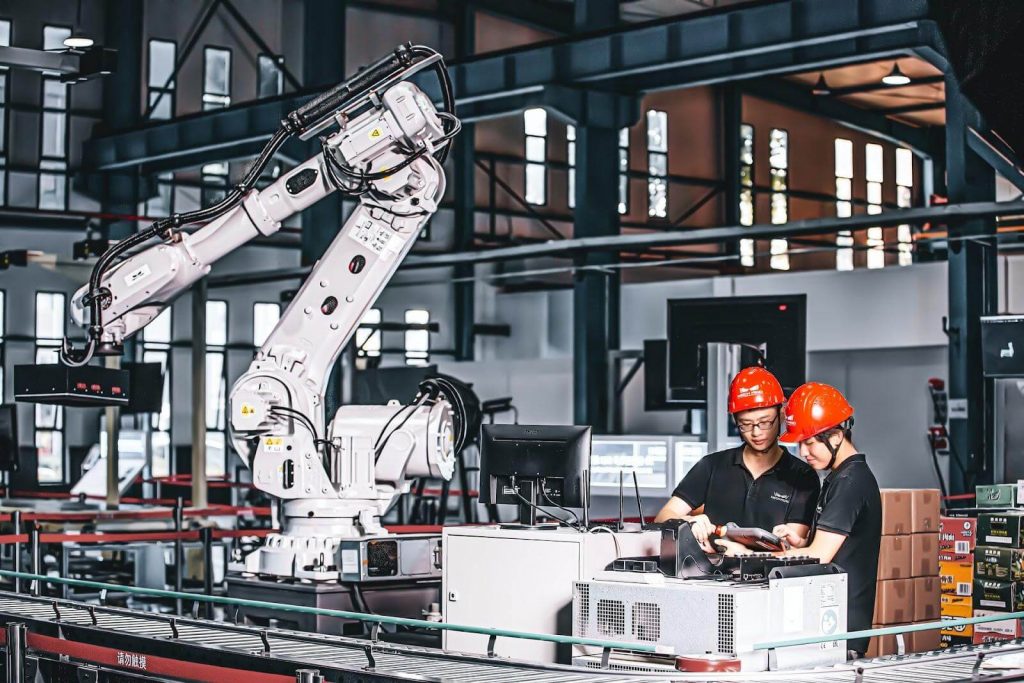According to Statista, global spending on blockchain technology is going to reach $19 billion by 2024 as compared to $6.6 billion in 2021 and $2.7 billion in 2019. These numbers indicate that the popularity of blockchain and understanding of its efficiency is growing among different industries and not only financial. In particular, the supply chain industry is on the list of active adopters of blockchain technology (BCT).
In the part “chain”, both blockchain and supply chain have the meaning of many elements forming the whole. Supply chain management consists of many stakeholders and co-dependent processes such as manufacturing, shipping, procurement, distribution, and transportation by different means.
It’s hard to trace all these processes without any support from partners that provide supply chain software development services and help with implementing advanced technologies such as blockchain. Let’s find out in this post how to successfully adopt blockchain technology in the supply chain and in which areas it can bring the most value.
Contents
Key Blockchain Characteristics And Adoption Specifics
The key blockchain characteristic is its decentralized and distributed nature. The transaction data is distributed among blocks, each having information about the previous block. Thus, all the blocks form a chain. The blockchain approach to data management eliminates the need for a central server to store data. Primarily, blockchain is responsible for data authentication, secure storage, and lack of intermediaries that can potentially be fraudsters.
Blockchain can be an additional technology solution in your organization as you won’t necessarily need to implement it in each supply chain process. It can be useful only for some business areas, and you can even create a new kind of service like, for example, blockchain inventory management.
Here is also a real-world example of blockchain technology implementation. The Ford company is using blockchain to track and trace the mining and supply of cobalt necessary for producing electric car batteries. With the help of BCT, Ford manages to use cobalt responsibly in the manufacturing process and contribute to environmental sustainability.
Enterprise blockchain technology can be also efficient if your company has many partners. Such partners can be multiple carriers or plants that manufacture certain product parts in other countries or, as it was with Ford, a cobalt mining company in Congo. Manually controlling each partner’s work would be cumbersome and, probably, not trustworthy enough. With BCT, you can build trusted relationships with your partners and still keep an eye on their work to comply with quality standards and contract requirements.
Benefits Of Blockchain Implementation
If blockchain implementation leads to the desired outcomes and helps in fulfilling your unique business goals, you can definitely consider this implementation beneficial. But there are also some blockchain benefits that can fit almost any supply chain company.
Maintained authenticity of products. Blockchain or distributed ledger technology is extremely efficient in controlling the authenticity of product development, such as jewelry. Jewelry and diamond company De Beers uses blockchain technology to control the authenticity of their products, from mining to their supply in the retail stores. The company developed the Tracr platform to check the authenticity of more than a million diamonds per week. De Beers partners with many diamond discovery companies in Botswana, South Africa, and Canada, and the blockchain-empowered Tracr platform ensures them and their customers that their products are authentic.

Increased consumer trust. This blockchain benefit is a natural consequence of the previous one. If your customers realize that you’ve invested in blockchain technology just to prove to them that your products or services are authentic and high-quality, you can win customer loyalty much quicker.
Quick and secure payment processing. Since blockchain is originally financial technology for cryptocurrency transactions, it can be used for payment transactions in other industries as well, in particular, supply chain. The blockchain-enabled transactions can be as supply chain cryptocurrency transactions as regular ones. The lack of intermediaries and the presence of digital smart contracts allow supply chain companies to automatically monitor payment transactions from all parties involved in the service delivery.
Another important benefit of BCT is efficient risk management in the supply chain. That’s why we’ve decided to cover this benefit in a separate section.
Supply Chain Risk Management With Blockchain
The supply chain industry is largely dependent on global disruptions such as the COVID-19 pandemic. Times of disruption and volatility ask for extreme resilience from supply chain companies. Luckily, technologies such as blockchain can help in the efficient maintenance of supply chain resilience and visibility.
Blockchain offers transparency of the supply chain operations and enables secure trade establishing trust between all the parties involved. Blockchain-based systems also allow for secure traceability of supply chain documentation and information with the possibility to keep a record of past and real-time transactions.
If blockchain is also backed up by such physical assets as bar codes, QR codes, RFID tags, and IoT devices, the security and transparency of supply chain operations even increase.
Blockchain technology is also efficient in preventing cyber attacks on the critical supply chain infrastructure as well as in detecting counterfeit goods. And since blockchain doesn’t store actual supply chain data, only its cryptographic representation, data management with blockchain is practically risk-free.
Let’s now learn in the next section examples of blockchain use in different business sectors.
Blockchain Use Cases In The Supply Chain Industry
Practically, any company in the supply chain industry can gain an advantage from implementing blockchain. We list some of the common blockchain use cases in the supply chain domain.
Manufacturing industry. From clothes production to automotive manufacturing, blockchain can be of use to ensure authenticity and sustainability. Blockchain can save the manufacturing industry lots of money on damaged, lost, or counterfeit products as well as prove to customers the high quality of the company’s products.

Pharmaceutical industry. Medication counterfeit is, unfortunately, a common crime worldwide, affecting millions of people every year. However, blockchain can help reduce the number of fake drugs in pharmaceuticals. For instance, back in 2018, DHL partnered with Accenture to develop a blockchain solution for efficient authentication of drugs during production and distribution.
Agriculture industry. A blockchain network can ensure efficient use of farming inventory and contribute to maintaining all the agricultural trade documentation in check for all stakeholders. Plus, with BCT, farming companies of all sizes can count on equal trade opportunities. Responsible and smart agriculture is essential for the global economy and trade.
Food production industry. Just as with manufacturing, blockchain in food production helps ensure a completely visible production and distribution lifecycle. Thus, for instance, consumers can scan the QR code on the product to find out its true origin and make sure that they buy foods of expected good quality.
Building a robust blockchain network, application, or platform is a worthwhile investment for your supply chain organization. As thanks to blockchain, you get an additional opportunity to be in full charge of your supply chain business as well as reduce the number of disruptions.



